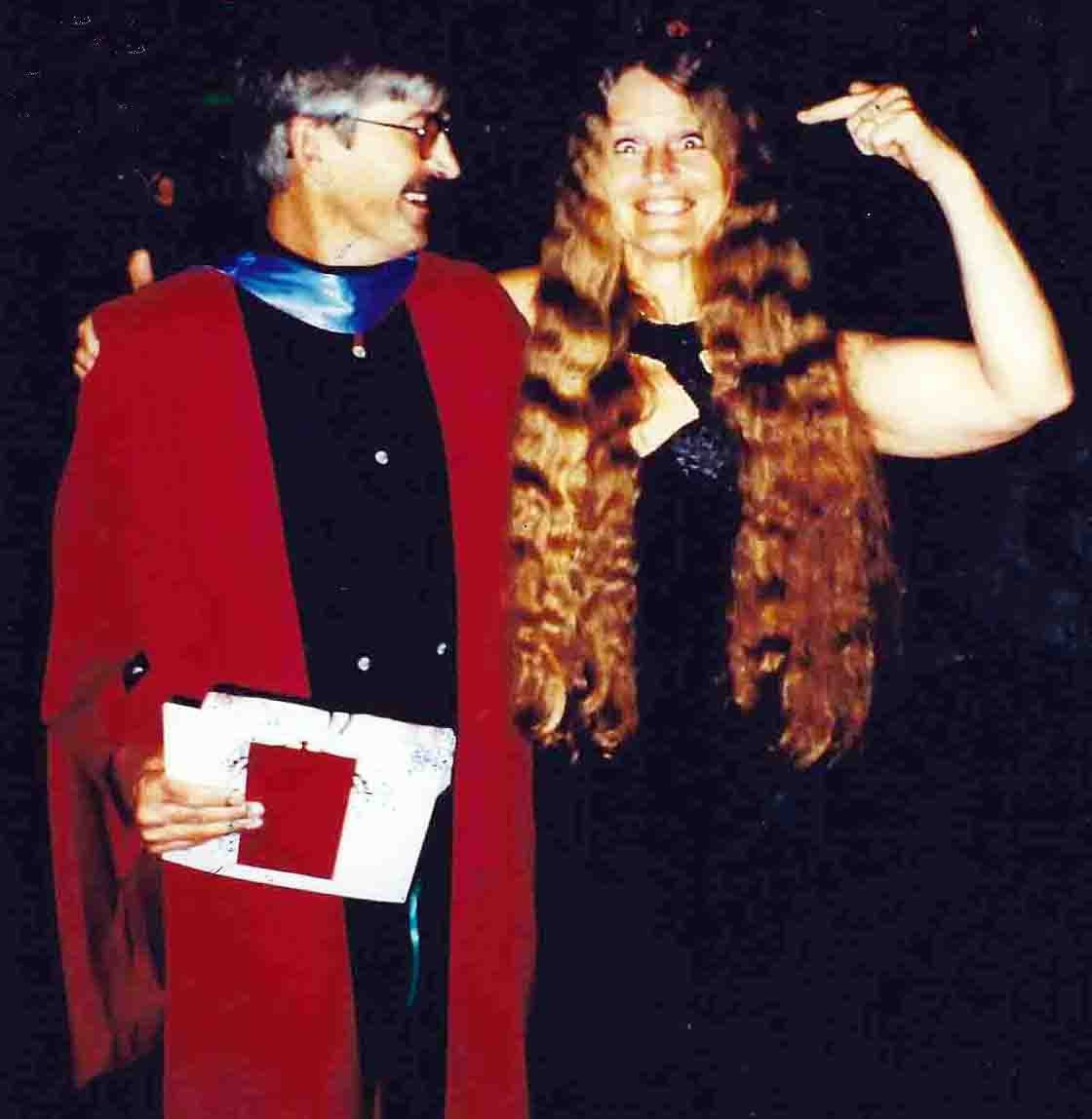One morning, a few weeks after his death, Karl has this to say:
On one level, I am a simple soul — with simple needs and desires (like the philosopher, Immanuel Kant— not needing to travel far from my home village). My desire now is the healing of my Beloved Wadie, whom I love with all my heart. Please believe this today — and always.
He continues:
I showed my love in simple ways, but it was my love for you.
I weep when I read those words, remembering the eulogy by Patsy, my Ph.D. supervisor and Karl’s professor. She marveled that this German tradesman, who had never attended high school, chose to study Kantian philosophy in his first year at university, at age 46:
Karl not only achieved a High Distinction in environmental ethics. Karl achieved a High Distinction in the way he lived and in the peaceful way he met his death.
Which, after all, is the point of philosophy.
Praise to Karl, the philosopher.

Radical trust
As I learn to lean into and accept Karl’s advice, new conversations emerge between us about radical trust. I struggle to release my bad habit of not trusting Karl. In November 2016, my lawyers’ forensic psychiatrist (a pompous, posturing ass, whose first question was about my marital status) pronounces me deeply depressed. He recommends an immediate course of antidepressants, shattering my illusions of self-healing.
I am infuriated and, finally, depressed.

I am at a genuine crossroads:
I feel that the legal case is holding me back and inhibiting my healing. I want to be free of it! I want a free and generous new life that is not hamstrung by “compensation”.
